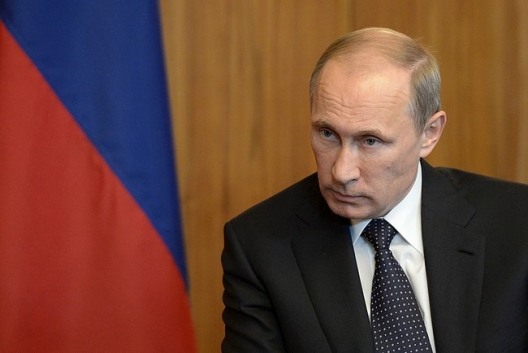 Chairman of the Joint Chiefs of Staff Martin Dempsey said Thursday that Russian President Vladimir Putin’s new use of Russian military force inside Ukraine harkens back to 1939 when Joseph Stalin led a Russian invasion of Poland, and Dempsey predicted Putin was far from finished.
Chairman of the Joint Chiefs of Staff Martin Dempsey said Thursday that Russian President Vladimir Putin’s new use of Russian military force inside Ukraine harkens back to 1939 when Joseph Stalin led a Russian invasion of Poland, and Dempsey predicted Putin was far from finished.
Dempsey was speaking to the Aspen Security Forum and responding to the news that the U.S. government is accusing the Russian military of firing artillery from Russian territory into eastern Ukraine in support of separatists there. The latest development represents a dangerous escalation of the crisis on the part of Putin, and the Russia-Ukraine crisis is now a global problem, he said.
“It does change the situation. You’ve got a Russian government that has made a conscious decision to use its military force inside another sovereign nation to achieve its objectives. It’s the first time since 1939 or so that that’s been the case,” Dempsey said. “They clearly are on a path to assert themselves differently not just in Eastern Europe, but Europe in the main, and towards the United States.”
Since 2008, the Russian military has increased its capability, proficiency, and the level of its activities, indicating Putin’s worldwide ambitions, Dempsey said. The strategy is Putin’s alone, he added, and said much of Russia’s military were probably reluctant participants in Putin’s war.
“This is very clearly Putin, the man himself, with a vision for Europe as he sees it, what he considers to be an effort to redress grievances that we burdened upon Russia after the fall of the Soviet Union and also to appeal to ethnic Russian enclaves across Eastern Europe,” he said. “He’s very aggressive about it, he’s got a playbook he’s been successful with two or three times, and he will continue.”
Following new U.S. and European sanctions on Russia last week and amid harsh international criticism of Russian support for Ukrainian separatists who apparently accidentally shot down a commercial airliner, Putin has not shown any indication that he is responding to the pressure by pulling back, Dempsey said.
“At a time when some folks could convince themselves that Putin would be looking for a reason to de-escalate, he’s actually taken a decision to escalate,” Dempsey said. . . .
“Putin may actually light a fire that he loses control over,” he [Dempsey] said. “There’s a rising tide of nationalism in Europe right now that has been created in many ways by these Russian activities.”
Image: Russian President Vladimir Putin, July 17, 2014 (photo: Office of the President of Russia)
